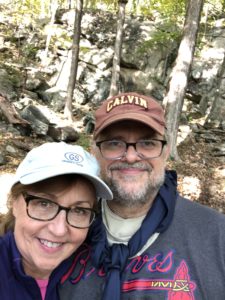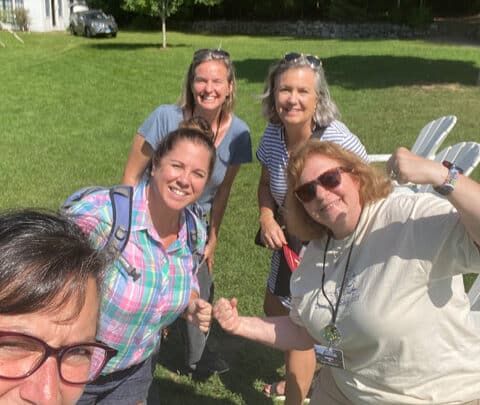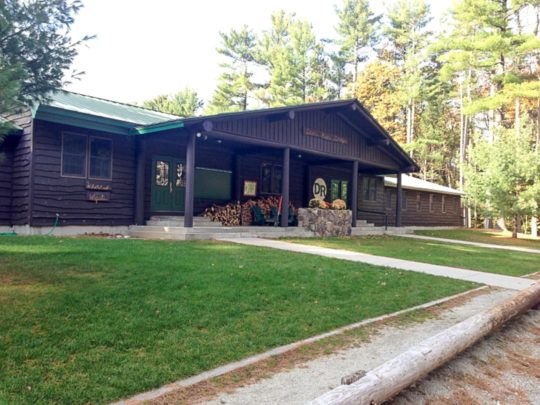It’s Not Just About Dirty Feet
By Craig Higgins, Brookwoods Staff Alumnus
Scripture: When he had finished washing their feet, he put on his clothes and returned to his place. “Do you understand what I have done for you?” he asked them. “You call me ‘Teacher’ and ‘Lord,’ and rightly so, for that is what I am. Now that I, your Lord and Teacher, have washed your feet, you also should wash one another’s feet. I have set you an example that you should do as I have done for you. John 13:12-15 [NIV]
Meditation: This story, of Jesus’ washing his disciples’ feet, is often heard during Holy Week. In fact, in many churches, not only is the story read, it is also essentially enacted. But whether or not we engage in any actual foot washing, it’s important for all of us, regularly and fully, to engage with these words.
Of course, Jesus’ washing their feet was quite shocking to his disciples—and for good reason. In the Ancient Near East, foot washing was the job of a servant; in fact, it was the job of the lowest servant, the lowest slave. It is always striking to me, however, that Jesus is not doing this out of some false self-image, out of some “inferiority complex.” Indeed he emphasizes that it is right that the disciples call him “Teacher” and “Lord,” for the simple reason that he is both.
It’s common for Christians to notice this and to say, “Look! In spite of who Jesus is—in spite of his being the Incarnate Word, the Son of God, the King of kings and Lord of lords—in spite of all that, he served his disciples by washing their feet.”
But I don’t think that’s quite right; in fact, the biblical emphasis seems to be elsewhere. Jesus does not wash his disciples’ feet—he does not accept this role of humble servitude—in spite of who he is, but because of who he is. St. Paul seems to be making the same point in Philippians 2, where Jesus, who “being in very nature God,” did not consider his divine nature something to be grasped, clutched, “used to his own advantage” (NIV), but emptied himself, “taking the very nature of a servant,” becoming a human being “for us and for our salvation” (in the words of the Nicene Creed).
After all, isn’t such self-giving, others-serving love at the heart of the very being of God? The doctrine of the Trinity tells us that God is a communion of love, that the three Persons have been giving love to and receiving love from one another from all eternity. Quite literally, love is older than the universe!
And this is exactly what we see in the Incarnate Son—self-giving, others-serving love. It’s why he came to earth and was born in a cattle shed. It’s why he served his disciples by washing their feet. And it’s why he gave his life on the cross.
After all, in Jesus’ day, who was lower in social standing than the lowest slave? It’s simple: a criminal, condemned to a cross. What we commemorate on Good Friday is that Jesus descended to the lowest place, washing away more than the dirt on our feet, give his life as the Lamb of God who takes away the sins of the world.
Reflection: Today, as we look to cross, let’s remember that it is there is that we see the true nature and character of God. “God is love,” St. John tells us; that’s who God is. We ponder this truth in the Trinity, we remember this truth at Christmas, and we celebrate it most gloriously in those holy days from Maundy Thursday to Easter Day.
Prayer: Heavenly Father, when we think of Jesus’ humbling himself not only to wash feet but to give his life on the cross, we see the depths of the divine nature, the depths of your divine love. Grant us so to receive this love with such thanksgiving that we share this love—in our words and in our deeds—with our neighbors and with all the nations; through Jesus Christ our Lord. Amen.
 Craig Higgins is the founding and senior pastor of Trinity Presbyterian Church in Purchase, NY and is Camp’s “resident theologian.” He wrote this piece as a Holy Week devotional for the American Scientific Affiliation, a network of Christians in the sciences, founded in 1941, where Craig is a member and serves on the Prayer Committee. Craig is a native of northeast Georgia, he is a graduate of Mercer University, Westminster Theological Seminary, and Trinity Episcopal School for Ministry. He and his wife, Ann, (our Director of Development) have three adult children, Caroline, Andrew, and Abby, who were a combination of campers, LDP, and staff at various times between 2000-2013.
Craig Higgins is the founding and senior pastor of Trinity Presbyterian Church in Purchase, NY and is Camp’s “resident theologian.” He wrote this piece as a Holy Week devotional for the American Scientific Affiliation, a network of Christians in the sciences, founded in 1941, where Craig is a member and serves on the Prayer Committee. Craig is a native of northeast Georgia, he is a graduate of Mercer University, Westminster Theological Seminary, and Trinity Episcopal School for Ministry. He and his wife, Ann, (our Director of Development) have three adult children, Caroline, Andrew, and Abby, who were a combination of campers, LDP, and staff at various times between 2000-2013.


